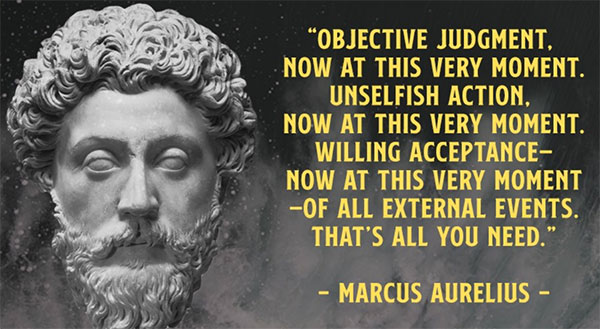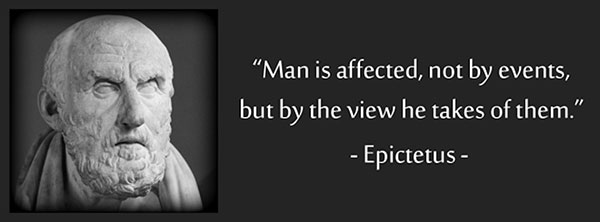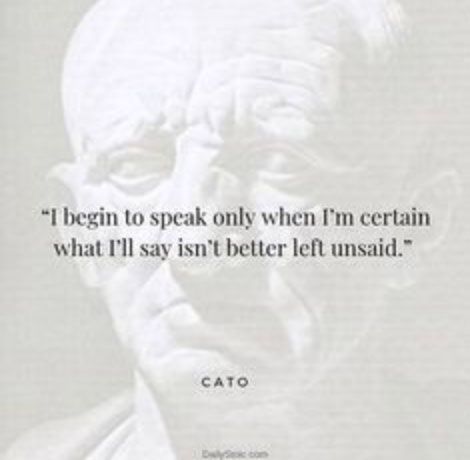Stoic Philosophy for the Experience Designer
Kriti Krishan /
I have a pet theory – that if you break down everything you learn to its essence, no matter how different in nature, topic or field, parallels can always be drawn between them. In that, no learning is ever wasted. Everything complements the other and cumulates to something more solid every time. A result of this theory is a host of interests – all seemingly unrelated to each other, they may even sound scattered, but to me – it all comes together.
Enter, this article.
Stoicism is a philosophy perpetuated by the ancient Greeks – made of simple rules of thumb, on the values involved in attaining tranquility, stability and peace. This philosophy hailing from the late ADs was written and rewritten and is followed even today by people seeking a set of rules to follow to bring structure to their lives.

Where does UX come in?
UX comes from science. It is rooted in psychology, design principles and heuristics. With a deep basis in research, it fits right into the purview to be tested by my little pet theory.
Control
“The chief task in life is simply this: to identify and separate matters so that I can say clearly to myself which are externals not under my control, and which have to do with the choices I actually control. Where then do I look for good and evil? Not to uncontrollable externals, but within myself to the choices that are my own…” – Epictetus, Discourses
The most prominent tenet of wisdom that comes from the Stoics is that of distinguishing between what is and isn’t within our control. They preach that the best thing we can do for ourselves is to make this crucial distinction and then focus our energies on what we can control while radically accepting what we cannot. This helps us manage our energies well and prevent wastage of precious resources.

For us UX designers, a similar philosophy goes miles.
The outcome is not ours, only our actions are ours. We can’t mind-control the developers to make sure the final app comes out exactly like we envisioned. We can’t influence users or make people love our designs. What we control is the screen. For stoics, they believe that all we control is our mind, and essentially the screen is an extension of our mind. The only thing we can do is understand that we have done our part, and be at peace with that.
Clarity
“How many have laid waste to your life when you weren’t aware of what you were losing, how much was wasted in pointless grief, foolish joy, greedy desire, and social amusements — how little of your own was left to you” – Seneca, On the Brevity of Life
“For to be wise is only one thing—to fix our attention on our intelligence, which guides all things everywhere.” – Heraclitus Of Ephesus, Lives Of The Eminent Philosophers
The stoics always say – Be ruthless to the things that don’t matter. Clarity comes from keeping the focus on what is important, and nothing else. Another quote (not from the stoics) says – “The main thing is to keep the main thing the main thing”. This is relevant now more than ever – as the attention economy fights for our time. Social media, the access to information, TV shows, etc. make it easy for us to be distracted and influenced by things not worth our time or brain space, and it is up to us to steer straight.
Our designs, too, need structure and clarity. Clutter is to a user what clutter is to Marie Kondo – a waste of space, that only distracts from what matters. The less the clutter, the better the UX, the easier it is for our user to accomplish their goal.
Judgement
“Keep constant guard over your perceptions, for it is no small thing you are protecting, but your respect, trustworthiness and steadiness, peace of mind, freedom from pain and fear, in a word your freedom. For what would you sell these things?” – Epictetus, Discourses

For the stoics, judgement is everything. What they seek is clarity of perceptions as the true path to peace. To attain clarity of judgement, it is important to question your judgement. They suggest that to attack every thought however harmless, ask yourself “Is this true”. The aim is stop us from operating on biases and misconceptions.
Us UX designers fall victim to similar biases so often. When’s the last time your client just didn’t have the budget to do user research? Or you had to make a decision but were caught between what you prefer vs. what you think the user would prefer? The answer is to always go back to the research to look for answers. So often we find ourselves talking on the behalf of the user, but in reality all we are talking from are biases not experience. It helps to always question what you think is true, chances are – you’re wrong about the user.
Against Habit
“So in the majority of other things, we address circumstances not in accordance with the right assumptions, but mostly by following wretched habit.” – Musonius Rufus, Lectures
“I learned to read carefully and not be satisfied with a rough understanding of the whole, and not to agree too quickly with those who have a lot to say about something.” – Marcus Aurelius, Meditations
How often in life do we do things, merely because that’s the way we have always done things. And maybe not just us, maybe that’s the way our parents and grandparents have always done things. And so much innovation is lost in that. One must always have a reason for what we are doing, and not be flown by the tide of mindless habit.
UX design is built on a platform of innovation. In order to keep designing, creating, innovating and building new products and experiences, doing things out of habit is the enemy. All our decisions should come as a result of deep understanding and clear intentions.
Watch the Wise
“Take a good hard look at people’s ruling principle, especially of the wise, what they run away from and what they seek out.” – Marcus Aurelius, Meditations
“Without a ruler to do it against, you can’t make crooked straight.” – Seneca
People always advise us to learn from other’s lives. But modelling from another’s life is not enough, we must also be picky about whose life we model. It’s the people we respect, the wise ones, that Stoics suggest that we follow.
Design, like any skill, is something that you learn by seeing and doing – and both have their own important place. Without watching, reading and learning from good UX in action, no amount of doing will make you a great designer. Find the greats, and learn from their work. Learning from the best is indispensable in any artform.
Simplicity and Ease
“If someone asks you how to write your name, would you bark out each letter? And if they get angry, would you then return the anger? Wouldn’t you rather gently spell out each letter for them?” – Marcus Aurelius, Meditations

So often in relationships, we fall victim to saying so much that our point within is lost. It’s better to say less by way of words and as a result, communicate more effectively.
Good UX is achieved not when there is nothing left to add, but when there is nothing left to remove. That’s why, every element must fight for a place on the screen and we only communicate to the user what must be communicated and nothing more. This way, the channel is simple, clear, and devoid of unnecessary blocks and turns.
Be Neutral
“Above all, it is necessary for a person to have a true self- estimate, for we commonly think we can do more than we really can.” – Seneca, On Tranquillity of Mind
“Of all the things that are, some are good, others bad, and yet others indifferent. The good are virtues and all that share in them; the bad are the vices and all that indulge them; the indifferent lie in between virtue and vice and include wealth, health, life, death, pleasure, and pain.” – Epictetus, Discourses

Accurate self-assessment is difficult, especially when it comes to things that we have created. Numerous studies – the Ikea effect, illusory superiority, etc. come together for us to create a grand fortified false image of ourselves and our abilities. It is for a clear-minded person (a stoic) to fight against these false beliefs to reach a state of neutrality.
You’ll always hear great designers say – don’t marry your designs. That’s one of the things that can stagnate the skill faster than anything else. When you stop taking feedback on your designs well, people stop giving it to you. And then you fall behind the times. In short, be open to advice and try to always see things clearly if you want to be and remain a great designer.
Don’t Trust the Senses
“This is the true athlete—the person in rigorous training against false impressions.” – Epictetus
“Heraclitus called self-deception an awful disease and eyesight a lying sense.” – Diogenes Laertius, Lives Of The Eminent Philosophers
A person I worked with once said to me – “If you have data, we’ll go with the data. If you have opinions, we’ll go with mine”. This was profound to me, because it made me realize that people’s opinions and senses can be wrong so much of the time. It’s up to us to filter them out and only believe what is verified and reliable.
Trust the data.
How often do we think – nah most users probably don’t want to track their shipments on a daily basis, so there’s no need to keep it upfront. Yeah, we’re probably wrong. It’s only data that can keep us correct, not our sense of things. Let’s seek out data to drive our design decisions and make sure that we are not swindled by our own senses.
Philosophy can be preachy. And it’s also not everyone’s cup of tea. But if you were to take just one thing away from this article, let it be this – Oneness. Spirituality across sects and geographies preach oneness as their golden nugget. Oneness, on a spiritual level, preaches being in sync with all beings, experiences and lives on the planet; being able to feel empathy for them and understand them. For us in this context, theories, ideas, fields, all come together at some point. They become one. If you look deep enough, things merge together, complement each other – and are never unrelated.





